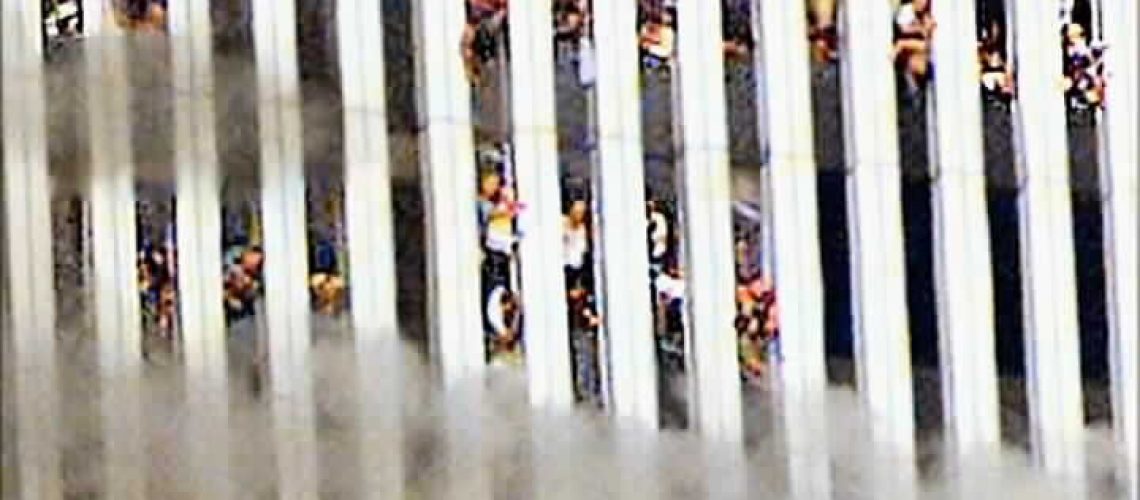Although not directly threatened by the attacks of Sept. 11, 2001, my experience that day as a New Yorker, and even as a Jew with close Israeli relatives, will always stay with me. The fact that this year’s commemoration of Sept. 11 comes but two days before Rosh Hashana also seems significant, but perhaps only because of the reflective activity that this season of the High Holy Days traditionally demands of us.
A number of years ago, I made a rough calculation of the number of Jews murdered during the Holocaust. Using the approximate start date of June 22, 1941, the German invasion of the Soviet Union, for its beginning — the Einsatzgruppen began their mass shootings at this time — I calculated that an average of over 4,000 Jews were murdered each day until the war ended on May 8, 1945. In other words, the European Jewish population of 11 million suffered the equivalent of more than one and a third 9/11-size catastrophes everyday for three years and ten months.
When I wrote this reflection in a blog post, someone accused me of trivializing the attacks on America that terrible day in 2001, due to some kind of warped Jewish chauvinism. This reaction reminded me of another friend who bristled sometime earlier, when I indicated that the Rwanda genocide in 1994– killing 800,000 people in about 100 days– may have exceeded the rate of killing that went on at Auschwitz. I was definitely not downplaying the horrors at Auschwitz. Similarly, what I wrote was not meant to minimize what happened on 9/11.
Just as I had wanted to illustrate how horrible the Rwanda genocide was, I was also emphasizing with this calculation how unbelievably awful the Holocaust was. Sept. 11 gave me another measure of that earlier horror. The fact that we Jews have experienced genocide doesn’t make us better than others, but it does require a degree of consideration when it comes to our fears and our concerns for security and well-being.
My feelings about the World Trade Center are personal. For a number of years, I worked nearby and used to go there occasionally on my lunch hour. In the 1980s, I even had a girlfriend whose father, a high-ranking engineer there, gave our two families a very special tour of its workings behind the scenes.
Beginning in August 2001, my cousin Gila, a kibbutznik from the Galilee, stayed with me for a few months. It turns out that Sept. 11 is her birthday; the train station at Nahariya, the town neighboring her kibbutz, was struck by a suicide bomber two days before. I remember her tears at the shock of it – undermining her previous feeling that her area was immune from the ravages of the Intifada.
Family and friends called early that day to express birthday greetings; within a couple of hours,we started getting a different kind of call. We weathered that day and its immediate aftermath together. My little maltese pooch, Rocky (since long departed from this world), barked urgently as the first of us to sense the wave of toxic odors of burnt plastics and other materials wafting up that evening from the ongoing fires at the World Trade Center site, six or seven miles south of us. After the twin towers collapsed, Gila came close to panicking that the fire somehow would sweep through Manhattan toward us. I had to assure her that New York buildings are not so flammable.
These memories bring on some of that feeling of melancholy, in the pit of my stomach, that I experienced then, but no longer the fear. Here’s wishing you all a Shana Tova, and a profound hope that this year, God and humankind will not let us down in the ways they have in years past (please forgive the blasphemy).

